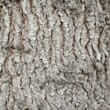Background
- Pycnogenol® is the registered trade name for a patented water extract of the bark of the French maritime pine (Pinus pinaster ssp. atlantica), which is grown in coastal southwest France. Pycnogenol® contains oligomeric proanthocyanidins (OPCs) as well as several other bioflavonoids: catechin, epicatechin, phenolic fruit acids (such as ferulic acid and caffeic acid), and taxifolin. Procyanidins are oligometric catechins found at high concentrations in red wine, grapes, cocoa, cranberries, apples, and some supplements such as Pycnogenol®.
- There has been some confusion in the U.S. market regarding OPC products containing Pycnogenol® or grape seed extract (GSE), as one of the generic terms for chemical constituents ("pycnogenols") is the same as the patented trade name (Pycnogenol®). Some GSE products have been formerly erroneously labeled and marketed in the U.S. as containing "pycnogenols." Although GSE and Pycnogenol® do contain similar chemical constituents (primarily in the OPC fraction), the chemical, pharmacological, and clinical literature on the two products are distinct. The term Pycnogenol® should therefore only be used to refer to the specific, proprietary French maritime pine bark extract. Scientific literature regarding this product should not be referenced as a basis for the safety or effectiveness of GSE.
References
- Belcaro, G., Cesarone, M., Silvia, E., et al. Daily consumption of Reliv Glucaffect for 8 weeks significantly lowered blood glucose and body weight in 50 subjects. Phytother.Res. 4-29-2009.
View Abstract - Belcaro, G., Cesarone, M. R., Errichi, S., et al. Treatment of osteoarthritis with Pycnogenol. The SVOS (San Valentino Osteo-arthrosis Study). Evaluation of signs, symptoms, physical performance and vascular aspects. Phytother.Res. 2008;22(4):518-523.
View Abstract - Belcaro G, Cesarone MR, Errichi BM, et al. Venous ulcers: microcirculatory improvement and faster healing with local use of Pycnogenol Angiology 2005 Nov-Dec;56(6):699-705.
View Abstract - Belcaro G, Cesarone MR, Ricci A, et al. Control of edema in hypertensive subjects treated with calcium antagonist (nifedipine) or angiotensin-converting enzyme inhibitors with Pycnogenol. Clin Appl Thromb Hemost 2006 Oct;12(4):440-4.
View Abstract - Cesarone MR, Belcaro G, Rohdewald P, et al. Rapid relief of signs/symptoms in chronic venous microangiopathy with pycnogenol: a prospective, controlled study. Angiology 2006 Oct-Nov;57(5):569-76.
View Abstract - Cesarone, MR, Belcaro G, Rohdewald P, et al. Prevention of edema in long flights with pycnogenol. Clin Appl Thromb Hemost 2005;11(3):289-294.
View Abstract - Chayasirisobhon S. Use of a pine bark extract and antioxidant vitamin combination product as therapy for migraine in patients refractory to pharmacologic medication. Headache 2006 May;46(5):788-93.
View Abstract - Dvorakova M, Jezova D, BlazÃcek P, et al. Urinary catecholamines in children with attention deficit hyperactivity disorder (ADHD): modulation by a polyphenolic extract from pine bark (pycnogenol). Nutr Neurosci 2007 Jun-Aug;10(3-4):151-7.
View Abstract - Koch R. Comparative study of Venostasin and Pycnogenol in chronic venous insufficiency. Phytother Res 2002;16 Suppl 1:S1-S5.
View Abstract - Nikolova V, Stanislavov R, Vatev I, et al. [Sperm parameters in male idiopathic infertility after treatment with prelox]. Akush Ginekol (Sofiia) 2007;46(5):7-12.
View Abstract - Ryan, J., Croft, K., Mori, T., et al. An examination of the effects of the antioxidant Pycnogenol on cognitive performance, serum lipid profile, endocrinological and oxidative stress biomarkers in an elderly population. J Psychopharmacol. 2008;22(5):553-562.
View Abstract - Stanislavov R, Nikolova V. Treatment of erectile dysfunction with pycnogenol and L-arginine. J Sex Marital Ther 2003;29(3):207-213.
View Abstract - Suzuki, N., Uebaba, K., Kohama, T., et al. French maritime pine bark extract significantly lowers the requirement for analgesic medication in dysmenorrhea: a multicenter, randomized, double-blind, placebo-controlled study. J Reprod.Med. 2008;53(5):338-346.
View Abstract - Tenebaum S, Paull JC, Sparrow EP. An experimental comparison of Pycnogenol and methylphenidate in adults with Attention-Deficit/Hyperactivity Disorder (ADHD). J Atten Disord 2002;6(2):49-60.
- Yang HM, Liao MF, Zhu SY, et al. A randomised, double-blind, placebo-controlled trial on the effect of Pycnogenol on the climacteric syndrome in peri-menopausal women. Acta Obstet Gynecol Scand 2007;86(8):978-85.
View Abstract







